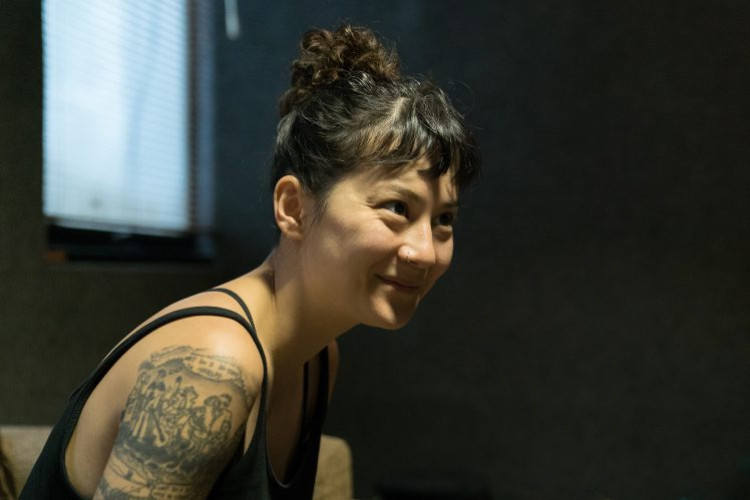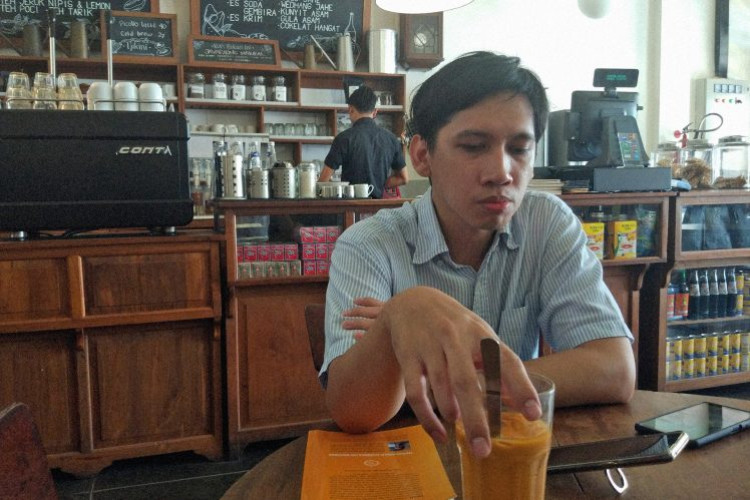
Gilles Peterson: “What you mustn’t do when you get old is you must never be comfortable.”
We spoke with one of Joyland Festival Bali 2024’s legendary DJ performers, Gilles Peterson, on how the world of music and festivals are shifting through his eyes as *the* decorated radio personality and DJ.
Words by Whiteboard Journal
Words: Garrin Faturrahman
Photos: Samuel Evander
Another year, another Joyland Festival. For their 2024 iteration in Bali, they’ve brought a wide roster of DJs, and one of them was the influential and notable—or even noble, due to him being recognised by the British Empire for his works—Gilles Peterson.
Such attainment in the domain of music are linked with him forming two big shot labels, Acid Jazz Records and Talkin’ Loud, being a radio personality with a decorated history ranging from pirate radio stations up until being hired at BBC Radio 1, and his prowess as a DJ, playing at small scale clubs all the way to international music festivals.
His works have always been deeply associated with technology, and this is always reflected with him being open to all sorts of new windows, and each is met with the utmost goal: discovery. Under the rainy skies of Joyland Festival Bali 2024, we chatted with Gilles Peterson on his ventures in reaching new audiences, the changing scene of music festivals, and what it takes to step out of one’s comfy zone.
I’ve read that you were a guest DJ for Grand Theft Auto V. How do you see the newer age of DJing? Does video games help?
Oh, well, I mean, look, for me, because I am passionate about the music I play, I always like to try and find new audiences to be able to introduce my music, which is more difficult these days because everyone has their own echo chamber. So to find new platforms or mouthpieces that allow you a brand new audience is more difficult.
And so doing things like DJing with EDM DJs or DJing on games, that’s a beautiful way for me to be able to play my music to an audience that isn’t necessarily familiar with my music. So I’ve always tried to find new openings because I can always play to people who already know me. And that’s great, I love doing that. But I also love the challenge of playing to people who’s first time hearing this music.
Can streaming platforms be seen as a challenge there?
Yeah, I mean, I think the key thing really is to be able to just spread your music to new areas. Because algorithms are allowing people to find it or whether that’s because there’s new platforms, streaming services that are able to play your music, that want to champion your music, you just have to be aware—I have to be aware of what’s going on—how you find new audiences, I think that’s the key really: how you find new audiences and also kind of mix the generations together; mix the young, the old, bring everybody together.
So I do a festival in England, I do several festivals, but I do one festival called We Out Here in the UK and it’s maybe 15,000 people and we have like old jazz legends, but we also have the brand new kid, young DJs, you know, who are playing like interesting music rather than just generic.
And so because in the UK, there’s so much sub-variations in club culture, there’s always gonna be some new young people who understand the thread of the depth, deep music. And so what you mustn’t do when you get old is you must never be comfortable. The key is to always put yourself into a new zone and to be out of your comfort zone, and that’s how you find new people. I think a lot of people go wrong when they just think that they’re successful and people will follow—people will not follow! You’ve always got to find new people.
I’d like to compare it with the Joyland Festival, for instance. How do you see the eclecticness of this festival?
This is very interesting. I think that I’ve been coming to Indonesia for maybe 20 years now, on and off, I used to play in Jakarta a little bit and then slowly going to Bali to do some events in resorts and then playing at the Potato Head a few times, and I noticed that a place like Potato Head has developed a sophisticated alternative view of club culture by bringing in people who are not the kind of… you know, influencer DJs. They’re bringing in the DJs who are kind of really part of the culture, right?
View this post on Instagram
And so what that means is it also inspires local DJs and the local scene. So, for example, you know, I was talking to the other interview [that] I went to Miller Records this week. You know, it’s a shop in Bali which sells vinyl and they have really amazing music. I think that it’s important that places like that exist because people like Potato Head have been pushing stuff and I think it’s also the reason that a festival like Joyland can come because people have got a better understanding of the music, an eclectic approach, so you can listen to Todd Terje, or James Blake, or Kings of Convenience—a fantastic experience, and it’s a beautiful festival. I mean, this is super eclectic, it’s super discovery, it’s… you know, apart from the weather, it’s amazing.
So it’s still in the same mindset of reaching the audience?
Yeah, I think so. I look around, it’s very diverse age-wise, families, young people. I think that it seems like it’s well tastefully put together. And it’s important that these things happen because everything otherwise becomes the very lowest common denominator. Everything ends up [being] the most commercial thing possible. So there always needs to be people who plot this kind of very passionate approach to the art of music and how you put different music together to create something beautiful like this.

(Photo: Samuel Evander)

(Photo: Samuel Evander)

(Photo: Samuel Evander)
What are your thoughts on why music festivals have been so significant in today’s generation?
Yeah, I mean, I’m split in my head about festivals because of course festivals are very great because they give people the chance to go and see all their favorite bands, so it’s a nice place to look forward to and it’s something that’s grown a lot in the last 10–15 years in the UK. There’s over 500 festivals in the UK. There were even more, but I think it’s become part of people just growing up: you go to a festival.
The problem with that is that it tends to affect regular residencies and proper… like, for me as a DJ, sometimes I like playing every week in different places, but I think the club scene has dropped a little bit and the live scene has dropped a little bit because people just want to go see the bands at the festival. So it can kind of have a negative effect on the actual day-to-day network of music and venues.

(Photo: Samuel Evander)

(Photo: Samuel Evander)

(Photo: Samuel Evander)
Okay, so the whole bigger picture?
The bigger picture, and for me as an artist, I like doing things more experimental, doing things in a smaller venue on a regular basis to build a scene where as if you play at big festivals it’s almost like you have to play your big set. And by playing your big set you’re playing to the mass, and so you’re not taking as many risks. And if you’re playing every week, you can kind of build things up more. So for me, it’s the balance of the two. Do you see what I mean? So the festival is kind of like a way in for people. It’s a gate opener, you know, an entry point.
Given the current music landscape, what advice would you offer to emerging artists trying to make their mark?
Yeah, it’s hard. I mean, the thing is, it’s interesting because you might think… there’s an inspiration here in Indonesia, he’s Dea Barandana. I think he’s really interesting because he’s very similar to me. He’s a collector, and he’s into music from a DJ perspective, but always searching for something that hasn’t been heard before. But he’s also about producing music and encouraging and creating a new scene.
So for me, I think that it’s important for DJs to look to people like him, just to see the depth that they go to, to reach people like me. Because I can come and I hear him and he brings his own style and character to DJ. And that’s really important because it basically is about finding your voice and trying to find your uniqueness.
That’s what I always suggest to people, you know, we’re all inspired and we want to be like something else, but you have to remember that actually making mistakes is about finding your personality and mistakes are good even in sound. Sometimes I think these days with the internet, everyone is too frightened to do things or say things, and so in the end they just kind of end up being safe, and safe is not going to get you anywhere.











